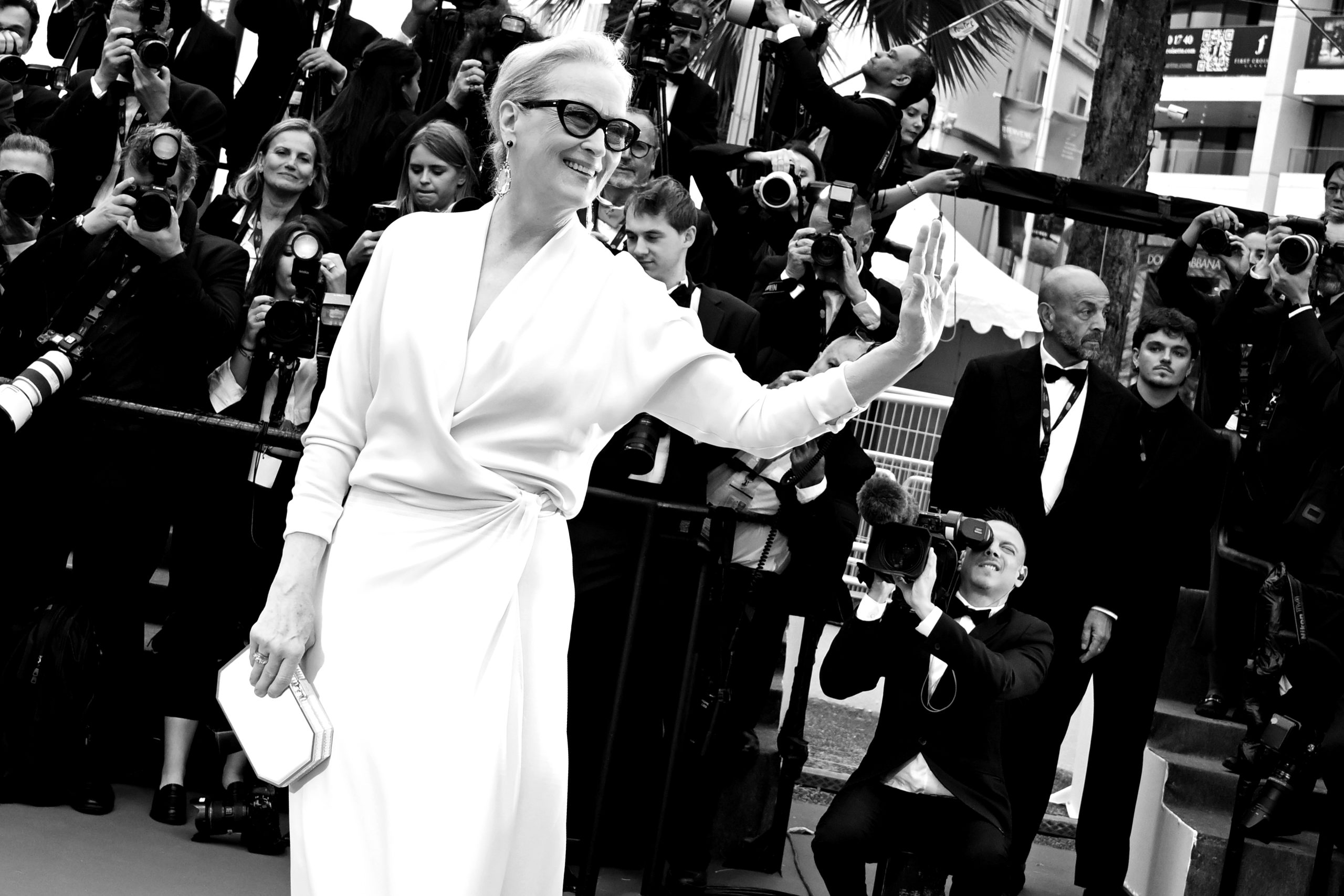
The 77th Cannes Film Festival commenced on May 14, 2024, with its characteristic blend of glamour and gravitas—though this year, even the weather seemed to mirror the film industry’s unsettled state. As dark clouds gathered over the Palais des Festivals and light rain drizzled upon the red carpet, cinema’s most prestigious celebration began against a backdrop of industry-wide anxiety.

Greta Gerwig’s Consecration
“I love cinema, and this is holy to me,” declared jury president Greta Gerwig in her opening remarks. “Art is sacred, and films are sacred, and I cannot believe that I am getting the opportunity to spend the next ten days in this house of worship.” The “Barbie” filmmaker’s reverence set the tone for a festival that, despite industry headwinds, remains steadfastly dedicated to its role as cinema’s high temple.

Gerwig leads an impressive jury that includes Lily Gladstone, Omar Sy, Nadine Labaki, Ebru Ceylan, Hirokazu Kore-eda, and J.A. Bayona—a diverse cross-section of global cinema tasked with selecting this year’s Palme d’Or winner from among twenty-two competing films.


Industry Concerns Cast Long Shadows
This year’s celebration unfolds amid profound industry uncertainty. Hollywood is still recovering from the dual actors’ and writers’ strikes that paralysed production throughout much of last year. Add to this the lingering effects of the pandemic on theatrical attendance and the financial underperformance of streaming platforms that many studios invested heavily in, and you have an industry facing an existential moment.
The economic concerns are visible even in Cannes’ typically lavish atmosphere, with reports of studio executives flying coach rather than business class—a small but telling sign of the industry’s belt-tightening.
A Diverse Cinematic Offering
Despite these challenges, Cannes’ lineup remains robust and varied. Major studio offerings include George Miller’s “Furiosa,” a “Mad Max” spinoff premiering eight years after “Fury Road” was a festival sensation. Kevin Costner will present his ambitious Western epic “Horizon,” while Yorgos Lanthimos returns after his “Poor Things” success with the anthology film “Kinds of Kindness.”
Beyond the studios, the festival features new works from auteurs like Paul Schrader (“Oh, Canada”), David Cronenberg (“The Shrouds”), Francis Ford Coppola (“Megalopolis”), and Andrea Arnold (“Bird”). Notably, Coppola financed his $120 million production by selling a stake in his family’s wine business—perhaps emblematic of how even legendary filmmakers must find creative funding solutions in today’s landscape.



Meryl and Messi: Stars of the Night
The undisputed star of opening night was Meryl Streep, present to receive an honorary Palme d’Or. Ascending the theater steps to the pulsating beats of “Mamma Mia!,” Streep received a two-minute standing ovation. Visibly moved, she quoted her mother: “Darling, you’ll see, it all goes so fast.”
Sharing the spotlight was an unexpected four-legged celebrity: Messi, the canine star of last year’s Palme d’Or winner “Anatomy of a Fall.” The dog’s presence offered a moment of levity amid the festival’s typically strict formality—a red carpet where even human guests have been turned away for minor dress code infractions.

Opening Film Sets Tone
The festival opened with Quentin Dupieux‘s “The Second Act,” a comedy starring Léa Seydoux and Louis Garrel. Unlike previous years’ opening selections, which have often been met with indifference, the choice of Dupieux’s film—a playful satire of the film industry itself—seemed to acknowledge both cinema’s enduring magic and its current challenges.

A Festival in Turbulent Times
This year’s Cannes unfolds not just during industry uncertainty but amid global turmoil, particularly the ongoing conflicts in Gaza and Ukraine. While the city has banned protests along the Croisette and the festival’s immediate surroundings, the gravity of world events will inevitably permeate the celebration.
Inside the Grand Théâtre Lumière, however, as Zaho de Sagazan serenaded the audience with a spirited cover of David Bowie’s “Modern Love” (a nod to Gerwig’s memorable dance sequence in “Frances Ha”), there was a palpable sense of cinema’s continued ability to bring joy, provoke thought, and unite diverse perspectives—even, or perhaps especially, during difficult times.

For the next eleven days, as the world’s greatest filmmakers and performers gather on the French Riviera, Cannes will once again attempt to fulfill its most essential function: to celebrate cinema as an art form that transcends commerce, trends, and even the troubles of its time.














Editor in Chief of Ikon London Magazine, journalist, film producer and founder of The DAFTA Film Awards (The DAFTAs).




